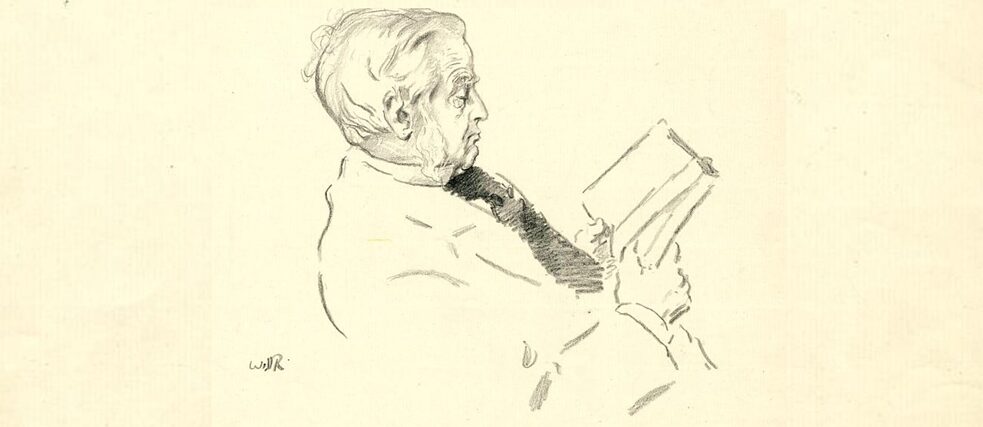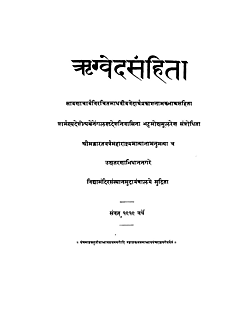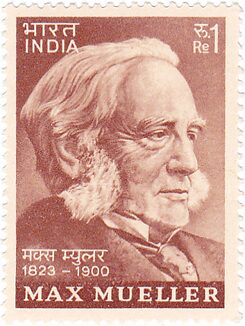An India for Readers
Visit to Max Mueller’s India

The renowned Sanskritist Max Mueller committed his whole life to the study of Indian languages and scriptures, with an unwavering focus on Sanskrit literature. This article delves into how his name and legacy are commemorated in contemporary India and examines the relevance he holds today.
By Vineet Gill
Max Mueller, who challenged and enriched the West’s understanding of Indian culture and committed his life to the study of Indian scriptures and languages, never set foot on Indian soil. This curious lacuna in Mueller’s biography was often invoked by his detractors to discredit his work and establish that he wasn’t as much of an India expert as he was made out to be. But those who see any merit in this argument forget that the India Mueller was interested in existed not in the real world but only in the realm of the imagination. Like Joyce’s Dublin or Dostoevsky’s St Petersburg, this India of antiquity was a literary creation, accessible only through the medium of language, regardless of which country or which century you lived in. And it was open not to travellers or conquerors but only to readers.
Mueller’s literary odyssey
Nineteenth-century Europe was known for its new-found interest in the East. There was nothing extraordinary about a poet like Goethe, at the peak of his fame, eschewing what the reading public expected of him and turning, impulsively, to Farsi and to the poetry of Hafiz for creative inspiration. But Mueller’s turn to Sanskrit early in his life was much more definitive and more inexplicable than Goethe’s dabbling in the languages of the world. By his mid-twenties, Mueller had already translated the Hitopadesha, a twelfth-century book of fables, into German. There were no career goals attached to this project. German publishers were not hankering after obscure Sanskrit masterpieces. In other words, Mueller knew that he was wasting his time with Sanskrit, and yet he persisted, as one does with any labour of love. ‘I cannot give up Sanskrit,’ he wrote in his diary, ‘though it holds out no prospect for me.’ Title page from a Rig Veda volume edited by 'Bhatta Moksha Mulara', the Sanskritised form Max Mueller gave to his name.
|
The origin of his most ambitious and most quixotic undertaking, too, can be traced back to the same decade of his life. This was his edition of the original text of the Rig Veda, whose first volume was published in 1847 by Oxford University Press. It’s difficult today to imagine the kind of painstaking work that went into the printing of a book in the nineteenth century. In Mueller’s case, the challenge didn’t just involve printing a series of dense tomes in complex Devanagari script, for which the type had to be specially manufactured; the real difficulty lay in accurately making handwritten copies for printing by referring to the various available manuscripts of the Rig Veda (often by tracing out every letter on transparent paper). And all this with no guarantee of a readership. The subsequent five volumes of Mueller’s Rig Veda, besides various other translations and writings on India, appeared over the next thirty years of his life.
Title page from a Rig Veda volume edited by 'Bhatta Moksha Mulara', the Sanskritised form Max Mueller gave to his name.
|
The origin of his most ambitious and most quixotic undertaking, too, can be traced back to the same decade of his life. This was his edition of the original text of the Rig Veda, whose first volume was published in 1847 by Oxford University Press. It’s difficult today to imagine the kind of painstaking work that went into the printing of a book in the nineteenth century. In Mueller’s case, the challenge didn’t just involve printing a series of dense tomes in complex Devanagari script, for which the type had to be specially manufactured; the real difficulty lay in accurately making handwritten copies for printing by referring to the various available manuscripts of the Rig Veda (often by tracing out every letter on transparent paper). And all this with no guarantee of a readership. The subsequent five volumes of Mueller’s Rig Veda, besides various other translations and writings on India, appeared over the next thirty years of his life.
A multilingual imagination
While Mueller was building this body of work—shaped as much by the commitment of a scholar as by the enthusiasm and waywardness of an amateur—he was also fashioning a new identity for himself, away from his roots in provincial Germany. (A similar tendency—a variant of homesickness for places unknown—had made Goethe so interested in the world outside Germany.) On the title pages of his Rig Veda editions Mueller Sanskritised his name to ‘Bhatta Moksha Mulara’, which means a scholar who directs you to the very source of salvation. Surely the grandest of all noms de plume, if we fail to notice its tongue-in-cheek spirit.Though Mueller remained a marginal figure in English culture throughout his life, his arguments and interventions weren’t dismissed outright by the English, maybe because that culture was still receptive to, or at least tolerant of, marginal voices.
 Friedrich Max Mueller 1974 Stamp of India
| © India Post, Government of India, GODL-India
Friedrich Max Mueller 1974 Stamp of India
| © India Post, Government of India, GODL-India Indeed, Mueller tried to argue with the English on the matter of India for much of his life, mostly to no effect. He wanted Britain to follow in the footsteps of other European nations and set up an institution for the study of Oriental languages, if for no other reason than for the sake of practical colonial diplomacy. A meeting with Macaulay is recorded in Auld Lang Syne. It involved the British grandee making a series of ‘disparaging remarks’—Mueller’s term—against Indians and Sanskrit literature, not allowing his guest to get in a word edgewise. But not all Englishmen were as bigoted as Macaulay. Mueller’s books were widely read in England, and the lectures he delivered in Oxford, many of which fed into his literary work, elicited strong, sometimes adversarial, responses by the leading English intellectuals of the time. Much of his polemical work, like his lecture ‘What Can India Teach Us?’, was addressed directly at the English establishment. And though Mueller remained a marginal figure in English culture throughout his life, his arguments and interventions weren’t dismissed outright by the English, maybe because that culture was still receptive to, or at least tolerant of, marginal voices.
The forgotten legacy
Sadly, our own culture has no time for such outliers. Mueller’s name is far from a living memory in today’s India, where political leaders pay unending lip service to the idea of promoting Sanskrit. His books are rarely spotted at bookstores, and no major English-language publisher has risked reprinting them, let alone commissioning new books about him. Chaudhuri’s biography of Mueller—an authoritative, clear-headed and eminently readable account—has remained out of print for years. And apart from that book, there hasn’t been any serious intellectual engagement with his work in this country, whether journalistic or academic. We seem to have forgotten not just Mueller’s contributions to India-centric scholarship but also the fact that his efforts to understand India weren’t very different from those of serious Indian thinkers of his time, such as Vivekanand and Shri Aurobindo, who were Mueller’s champions.Chaudhuri tells us that Mueller never visited India because his life and commitments, personal as well as professional, kept coming in the way. But in his final years, Mueller himself began to regard this as an unnecessary pilgrimage. He wrote: ‘. . . one learns to see with the mind and imagination what we cannot see with the eyes. Nay, in many cases I believe imagination is truer than what you see.’ Revisiting Mueller is to regain touch with the kind of complex, sympathetic and multilingual imagination that we need in our age of language chauvinism and hypernationalism; it is to rediscover an India that we cannot see with our eyes.